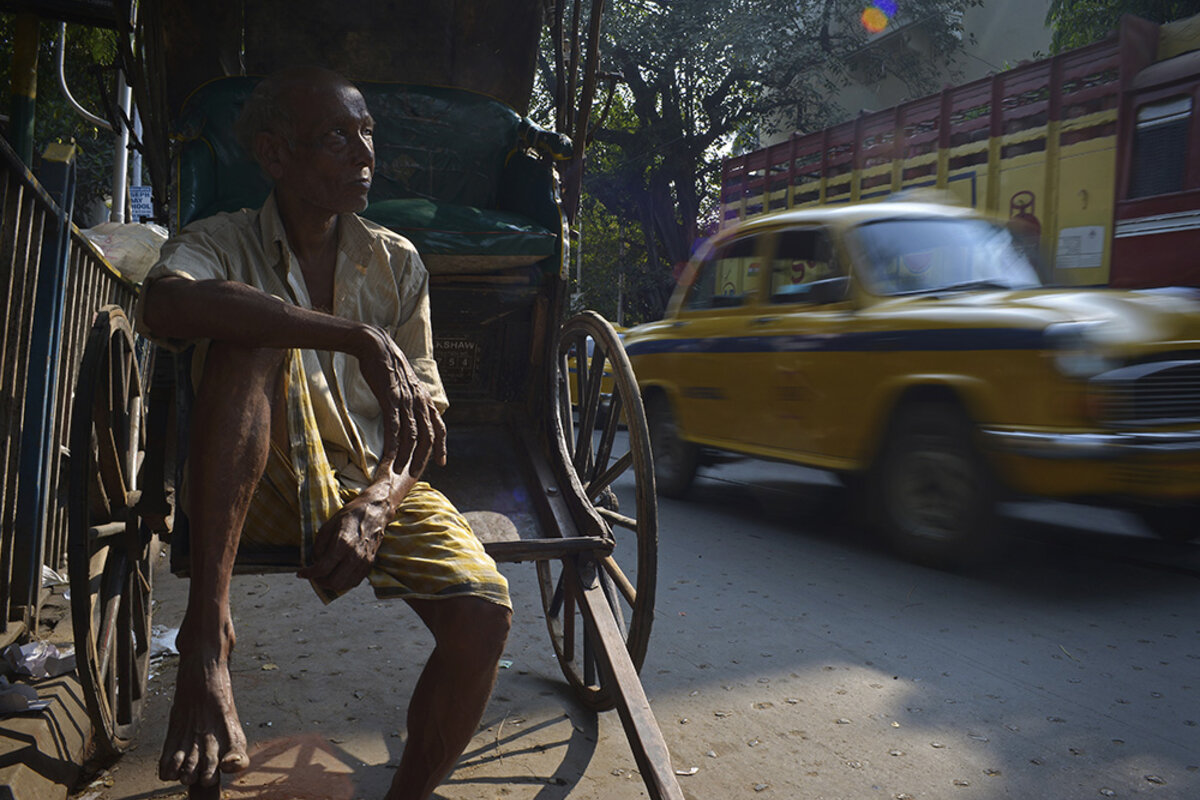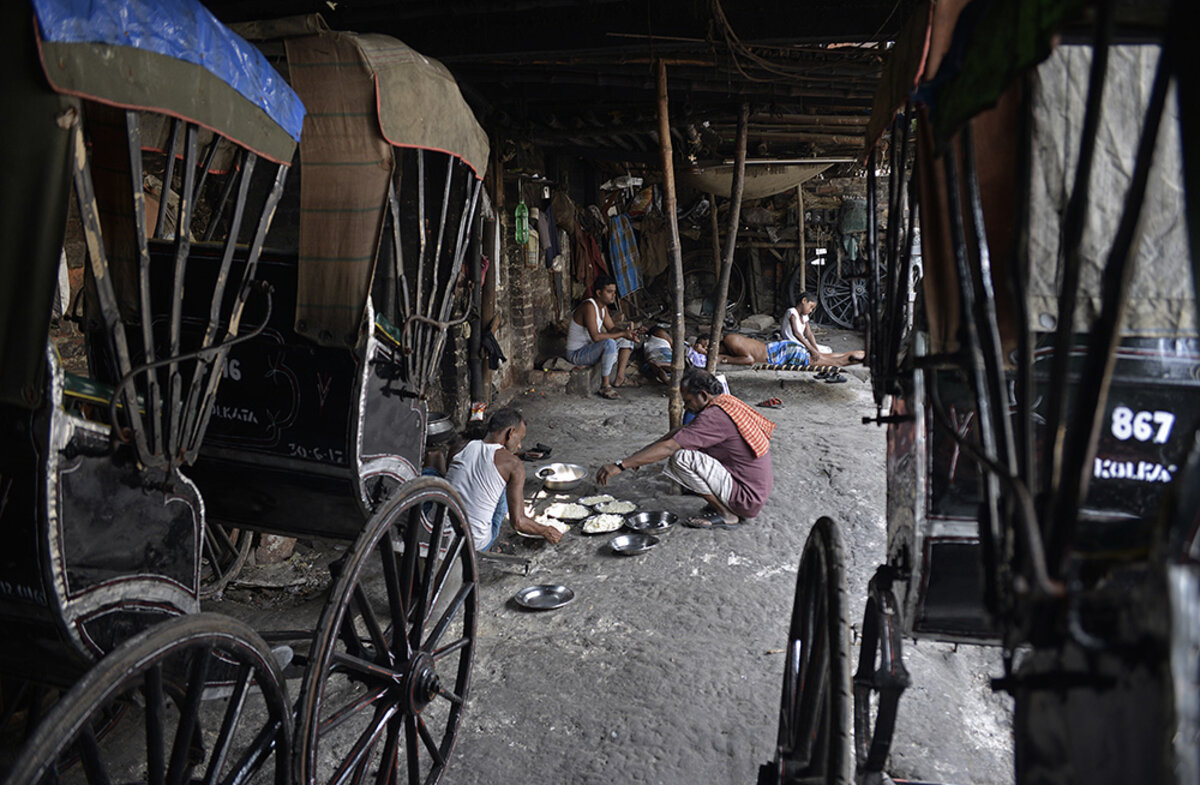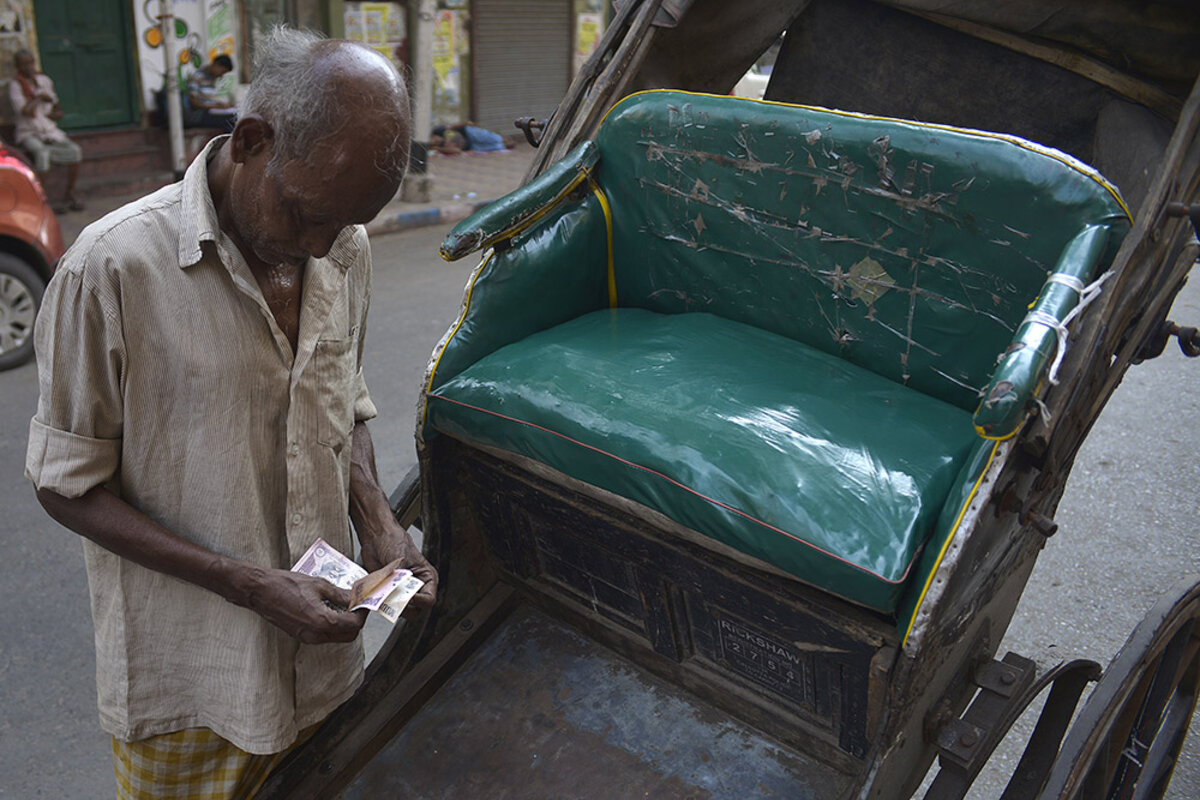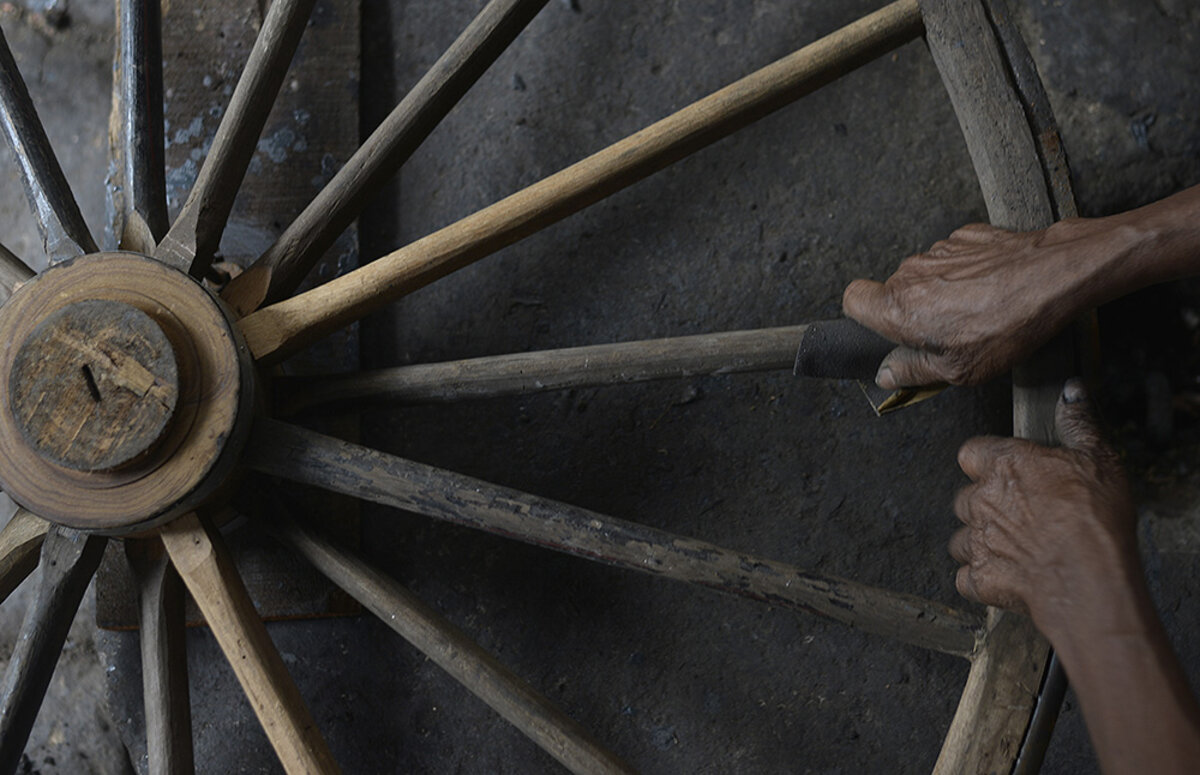Last of the rickshaws
Loading...
| Kolkata, India
After encountering hand-pulled rickshaws as a child, Ahmer Khan, a photographer based in Kashmir, never expected to photograph this dying mode of transportation in India. I asked him about access and his interactions with the rickshaw pullers in Kolkata.
Ann Hermes: What initially drew you to this story and how did you go about gaining access?
Ahmer Khan: When I was a kid, I have lived in Kolkata for a brief period and I remember going on to these rickshaws. That time I never knew that I would be a photographer and one day I’ll do a story on them. For the past few years, I have traveled to Kolkata several times and I saw them again and again. I did a little research on them through my friends in Kolkata and later on the Internet and I found more info and interested me a lot. Regarding access I met my friends in Kolkata and they gave me addresses where these rickshaws are mostly found. Initially, it was difficult to talk to them because they thought I was a government official who wants to seize their rickshaws or something but slowly when I told them I’m just a photographer and have nothing to do. Also, as I speak Hindi so it was easy to communicate with them. But it took a lot of time.
Hermes: It’s interesting that out of necessity Hindu and Muslim pullers share living space despite religious tension throughout India. Can you tell me more about what you saw in the ‘Deras’?
Khan: It’s a complete necessity for both the religious groups. But mainly in Kolkata, there aren't many religious tensions though it exists throughout India. At Dera’s both Hindus and Muslims live together though at most of the Dera’s they cook separately and at some of the dear’s they have divided the sleeping space. They live in harmony, though. In some Dera’s they watch movies together with a common television.
Hermes: Do you find most pullers to be like Mohammad Latif and Mohammad Sajad who are supporting families that they live apart from? What were some commonalities among the rickshaw pullers?
Khan: Yes, most of the pullers are away from their families and home. Whatever amount of money they earn, they send it to their families back home. One of the most common things about these pullers is that they usually come to Kolkata from poor and neighboring states of India. Most of them are Muslims and live in Dera’s by which they are able to send more money back home. Since Dera is sharing place usually in a garage where they share their bed and food.
Hermes: Overall, what are some of the biggest difficulties you face working as a photojournalist in India?
Khan: Honestly, I haven’t faced many problems working as a photojournalist in India. But I’m based in Kashmir which is a conflict zone and working as a photojournalist in Kashmir is a lot difficult than in any other part of India. In Kashmir, you can get killed or beaten anytime during the protests or encounter between the militants and Indian forces. We need to be really safe in Kashmir and in past many have been beaten by the forces or even few were killed.











